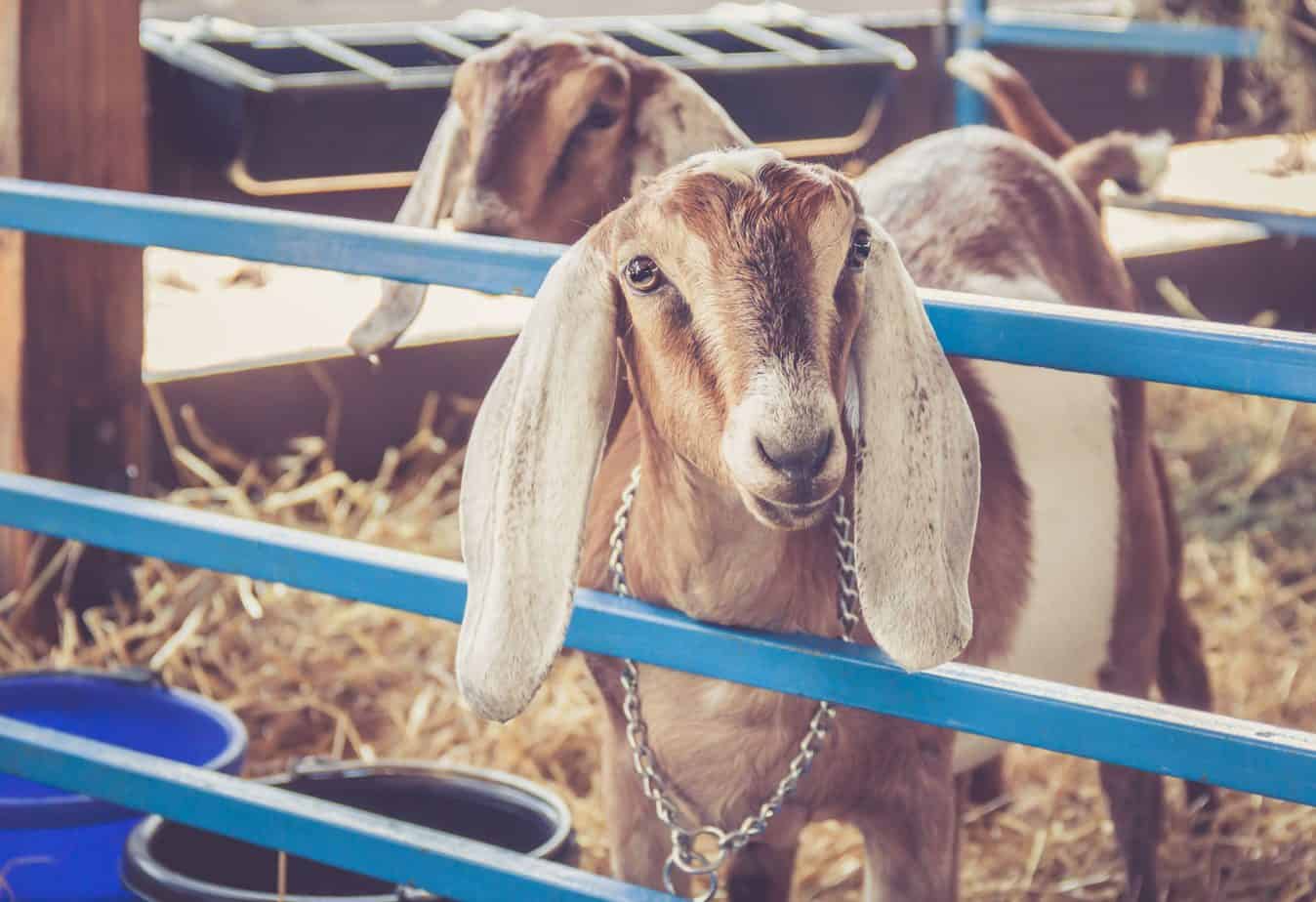Goats are fairly common in most farms and usually the first animals most people get after chickens. Before you add goats to your existing herd, it is a good idea to know about their life cycle, how often they reproduce, or how long do goats live etc. Lucky for you, in this article, I will be explaining all that as simply as I can.
A goat’s life expectancy varies based on its breed. Generally, most goats tend to have an average life expectancy of fourteen to eighteen years. Some goats can live well past the average life expectancy, while some can die much earlier due to illnesses.
Goats can fall sick quite often if you neglect taking care of them. That, combined with the fact that different species of goats have a different base life expectancy, makes it hard to say how long a goat lives. I’ll try to cover as much as I can about the life cycle of goats in this article so that you have at least a general idea of what you are dealing with.
Ensuring Health for Better Lifespan
Goats if taken care of can live for a good number of years. Here I’ll be providing some basic tips on how you can ensure proper health for your goats-
Keep a clean farm
Goats are considered mature once it is over two and a half to three months old. They develop pretty fast from this point on. They generally become livelier around this age. That also means that they jump around a lot and might end up hurting themselves if you have a sub-optimal farm setup.
If you have any structural hazards lying around in your farm where the goats are, then make sure you remove them. Also, keep your farm neat and clean.
Keep goats in herds
Another thing you should keep in mind is that goats are herd animals. They can’t live in solitude and will be prone to running off or getting depressed if you have a lone goat. They need to huddle with other goats to have a sense of companionship.
Having a lone goat significantly lowers its life expectancy because it is more susceptible to being malnourished. Solitary goats will also stay agitated most of the time, leading to behavioral problems. If you have a lonely goat, it will also be very loud and obnoxious. It would bleat incessantly trying to find friends.
Look out for parasites
Goats also tend to suffer from pests and parasites. They are uncommon to see in baby goats, but the more time they spend in the world, the more the risk of contracting parasites increases. You must keep its shed and its fur clean if you want it to stay healthy.
Provide low protein diet
Goats unlike cows don’t do well with high quality feed. They actually prefer low protein fibers. It’s just how they are built. So, keep that in mind and provide lots of low protein feed to your goats.
Caring for Senior Goats
Goats have a longer lifespan than most farm animals, on the condition that they are taken care of properly. But it’s easier said than done. As they get older goats face a wide variety of health complications that can severely cut down their life span.
Baby goats and mature goats tend to do fine with standard care. They have more energy, and they can eat and grow faster. Goats start to face complications as they start aging. It is not unlike most other animals, even humans.
You should monitor their health with regular checkups and be sure to check their weight. That would enable you to find problems early on and treat them effectively before they get any worse.
As Goats start to gain more and more years, you may notice them starting to lose weight and eating less. No matter how fresh and nutritious food you bring, the old goat won’t eat much. Eating less food means having less energy, and that would shorten the poor guy’s lifespan considerably if he falls sick.
That happens because when goats start to age, their teeth get worn down. Sometimes they even break or fall off. It usually happens to every goat that grazes naturally, so do not be alarmed. Have your veterinarian do some checkups to ensure that the uneven or overly sharp teeth are not hurting it.
It’s also a good time to be more hands-on about what they eat. Instead of letting them graze independently, it would be better to have special feed for them to supplement their diet.
Sometimes older goats might seem like they are losing their liveliness. Although common, this is not a natural thing. Your goat may be lacking in vitamins and minerals. If you want to ensure the goat can live happily for a long time, it’s probably a good idea to add some vitamins and minerals to their diet.
Discuss with your veterinarian about this to know exactly what supplements your goat needs. Doing these things lowers the burden a goat receives from age. It can help them live a longer and happier life.
Caring for Baby Goats
Baby goats are cute, but they are also very demanding. Ensuring proper nutrition and care in the early years of the goat’s life can dramatically increase its life expectancy.
A baby goat usually needs to be bottle-fed for the first few weeks, unless you have its mother with it. That is highly unlikely to happen if you bought it from a breeder.
Baby goats need mineral supplements for healthy growth. Neglecting a baby goats nutrition intake at this age makes it much more susceptible to other diseases later in life, significantly shortening its life expectancy.
Baby goats are fragile, and you should be especially wary of infectious diseases. Infections, diarrhea, and pneumonia, these diseases are the primary culprits for most of the deaths of baby goats.
The weight of a baby goat is a defining factor, and you must pay close attention to it after they are born. Babies that weigh less than two to three pounds tend to have a high risk of dying. It is not just diseases that they need to watch out for.
Underweight baby goats have a much harder time regulating their body temperature because of having less energy. They also have trouble getting up to suckle milk.
These baby goats need special care if they are to make it past the perinatal period. Even after they do make it past that, you should keep them under close observation for a couple of more weeks. If no other complications arise within that time, then you can heave a sigh of relief.
Goats are not considered babies anymore when they are around a few months old. At this point, they can easily eat regular farm feed.
How to Tell the Age of a Goat?
You can tell the age of a goat by their teeth. This method is fairly reliable for checking their age for the first four to five years, but it gets obscure as they start to age more.
One-year-old goats have small and sharp teeth. When they are around two years old they have two elongated front teeth, these grow and replace their first set of front teeth. When goats are four years old the first 4 sets of teeth fall off and get replaced by larger teeth. It’s usually a mix of permanent and baby teeth.
After they finish growing all the permanent teeth the age needs to be determined by the level of wear on them.
Conclusion
With proper care and grooming, you can provide your goats a relatively long lifespan. They require different care at different points of their lives, but with proper care. So, keep that in mind before you go out and get a bunch of them.
I hope after reading this you have a clearer idea about how long goats live, and how to properly take care of them at certain stages of their lives to give them a happy life and long life.

